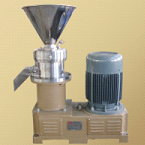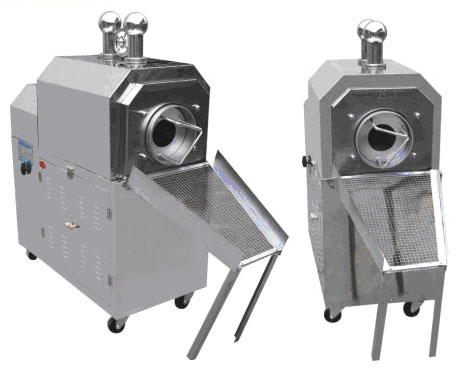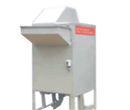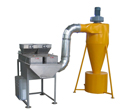Peanut Butter - Peanut Butter history, Peanut Butter Store, Peanut Butter Selection, Peanut Butter Uses, Peanut Butter Health
-
What about of peanut butter?
Peanut butter is a food paste made primarily from ground dry roasted peanuts, popular in North America and the Netherlands. It is mainly used as a sandwich spread, especially in the iconic peanut butter and jelly sandwich. The United States and China are leading exporters of peanut butter.
- The Peanut Butter History
Although the peanut has a long history, having been found in Peruvian mummy tombs, peanut butter is a relatively young food. In 1890, an enterprising physician, Dr. John Kellogg (of corn flakes fame), created peanut butter as a healthy protein substitute that was easy to digest for patients with no teeth. The manufacturing process was mechanized by George A. Bayle, Jr., and a patent for a peanut-butter machine was issued to Abrose W. Straub in 1903.
- How Select Peanut Butter?
There are many choices when selecting peanut butter.
Peanut butter is available in smooth, chunky (with small bits of chopped peanuts), natural, reduced-fat, no sugar added, and even swirled with jelly for those time-challenged consumers.
Commercial varieties are usually a blend of ground, shelled, roasted peanuts mixed with vegetable oil (usually hydrogenated) and a bit of salt. Some varieties also contain sugar and additives as stabilizers to prevent oil separation and to also enhance flavor.
Natural peanut butter normally contains only peanuts and oil, and will often separate requiring stirring.
- How store Peanut Butter?
Homemade peanut butter should be refrigerated in tightly-sealed containers and ideally used within a couple of weeks. Turn the container upside-down occasionally to help redistribute the oils.
Natural peanut butters should be refrigerated after opening and can be kept up to six months.
Commercial varieties require no refrigeration, can be kept up to six months after opening. Unopened jars can be stored up to one year in a cool, dark location.
Peanut butter is not a good candidate for freezing.
- Peanut Butter and Health
Peanut butter is a good source of Biotin, also called enzyme R or vitamin H. Biotin is a member of the B-complex family which is essential for the normal metabolism of fat and protein as well as for the absorption of vitamin C. Biotin helps thin, splitting nails and is also said to be good for the hair.
Peanut butter is also an excellent source of vitamin E, a potent antioxidant which protects polyunsaturated fatty acids in cell membranes from free-radical attack, thus helping prevent cancer.
Some people are severely allergic to nuts, especially children. These allergies have led to a ban on peanut butter in many schools.
- Peanut butter uses
the
Peanut Butter has been used in other food products for many years, the widespread use beginning in 1980 with the launch of Reese’s Pieces. Since then there has been large development into peanut butter’s use in other foodstuffs, some of which include: cake, jam, jelly, confectionary, ice cream, brownies, pretzels, peanut brittle, cookies, porridge and sandwiches amongst others.
- Other uses
Plumpy’nut is a peanut butter-based food used to fight malnutrition in famine stricken countries. A single pack contains 500 calories, can be stored unrefrigerated for 2 years, and requires no cooking or preparation.
A common, simple outdoor bird feeder can be made by coating a pine cone once with peanut butter, then again with birdseed.
Peanut butter is an effective bait for mouse traps.
The oils found in peanut butter are known to allow chewing gum to be removed from hair.
We can supply the peanut butter maker - peanut butter making machine, peanut butter mill, peanut butter grinder.
|
Model:GMS130 Peanut Butter Machine |
Model:GMS130B Peanut Butter Machine |

















